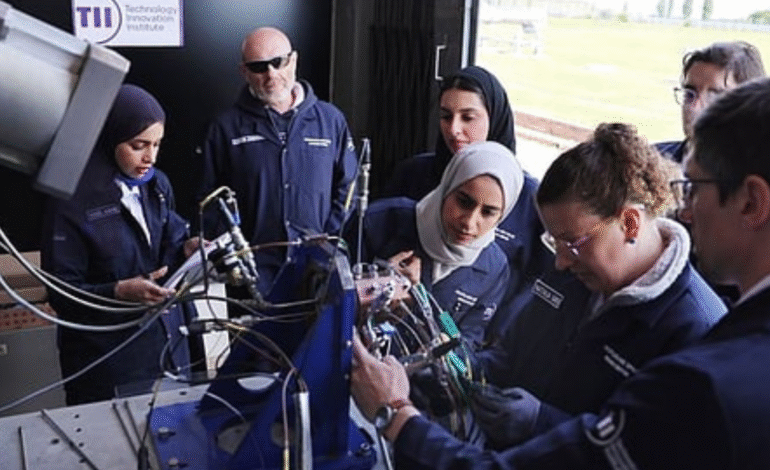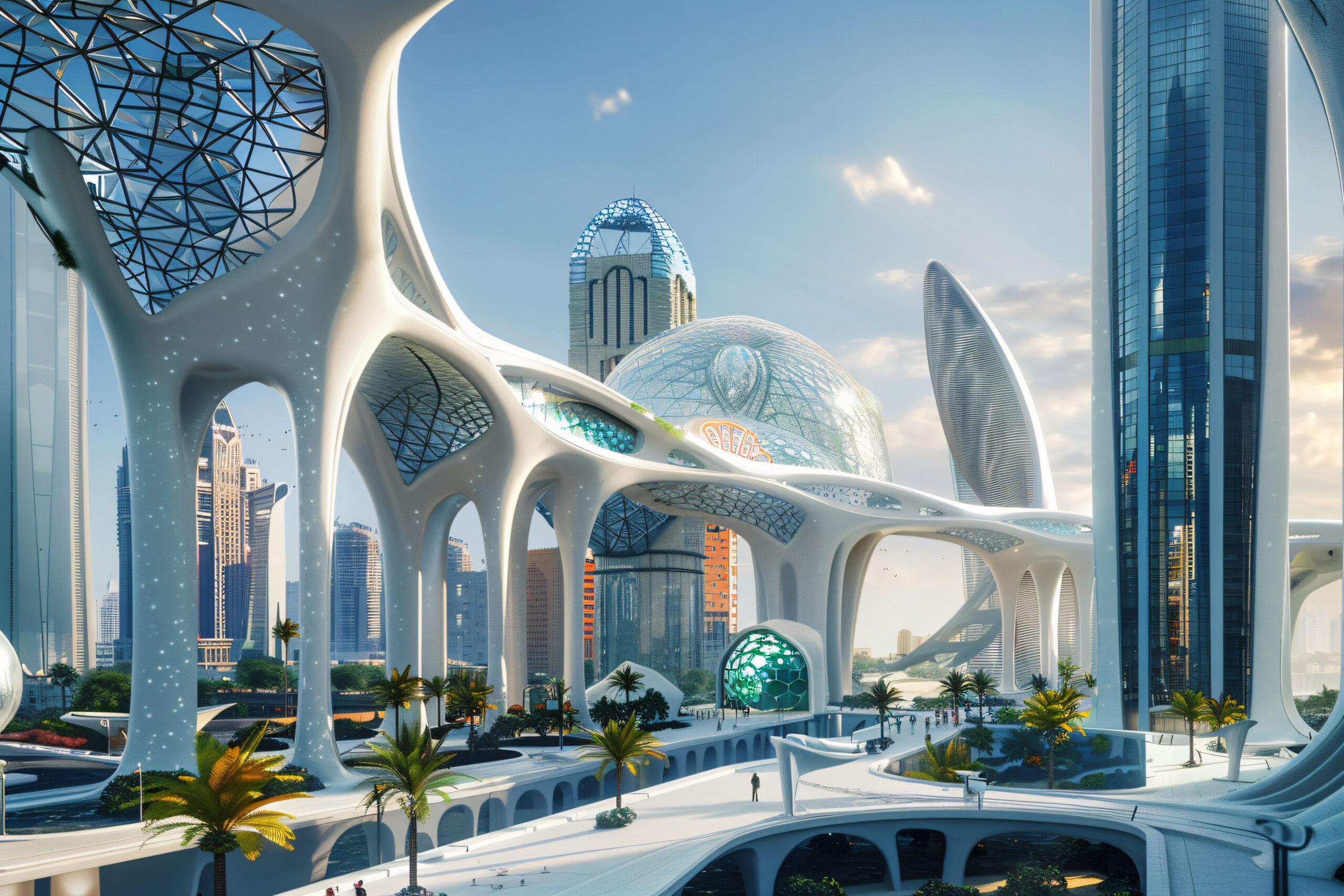UAE Launches First Liquid-Fuelled Rocket Engine

The United Arab Emirates has reached a major milestone in its space journey with the successful creation and operation of its first liquid-fuelled rocket engine. This achievement, announced by the Technology Innovation Institute (TII), part of Abu Dhabi’s Advanced Technology Research Council, marks a key step in building the UAE’s own space technology and strengthening its presence in the global space sector.
Liquid-fuelled engines are essential for modern space missions. They provide the power needed for satellite movement, orbital adjustments, and precise spacecraft control. Unlike simpler solid-fuel engines, liquid engines can be reused, controlled precisely, and adjusted as needed. With this technology, the UAE can now design engines for satellites, orbital maneuvers, and even lunar or Mars missions.
The 250-Newton Liquid Rocket Engine
The new engine is a 250-Newton-class liquid rocket thruster, made entirely in the UAE. It can generate enough power to lift 25 kilograms on Earth. Engines like this are mainly used for small satellite propulsion and orbital maneuvers, which are important for in-space mobility.
The engine went through more than 50 test firings and reached 94% combustion efficiency, showing its reliability and precision. Dr. Najwa Aaraj, CEO of TII, said: “This engine is more than a technical achievement. It is the foundation to build, test, and launch our own propulsion systems for future space missions. By doing this work in Abu Dhabi, we are strengthening national technology and empowering our talent.”
This achievement means the UAE can now create and operate engines locally, reducing reliance on other countries and supporting a self-reliant space program.
Training and Empowering Emirati Engineers
TII’s Liquid Rocket Engine Programme focuses on training national engineers. It brings together Emirati talent and international experts to share knowledge and skills. By doing this, the UAE is not only improving its space technology but also inspiring a new generation of scientists and engineers.
The program is part of TII’s mission to advance sovereign propulsion technologies. This includes creating engines with regenerative cooling and enabling independent access to space for scientific, commercial, and exploration missions. Dr. Elias Tzousanis, Principal Research Scientist at TII, said: “This engine’s success is historic. It proves the UAE can develop advanced propulsion systems. Our team’s dedication shows our leadership in space research.”
Building Local Testing Facilities
Initial tests of the engine were done at Airborne Engineering Ltd. in the UK, but TII is planning full-scale local testing facilities in the UAE. These will support cold-flow and hot-fire testing, allowing engineers to test engines fully at home.
Having local testing infrastructure is important. It helps engineers improve designs quickly, test new ideas safely, and support a growing space industry in the UAE. This also ensures that national talent remains central to innovation.
Preparing for Moon and Mars Missions
The UAE’s liquid-fuelled engine is designed to grow. Future plans include larger engines, cryogenic fuels, and advanced space mobility systems. These will support deep-space missions, lunar projects, and Mars exploration.
By achieving this, the UAE shows it can play a key role in international space programs. Local expertise allows the nation to collaborate globally on satellites, research missions, and space exploration. The liquid rocket engine strengthens the UAE as a leader in space innovation in the Middle East.
Key Features of the Engine
- Engine Type: 250-Newton liquid rocket thruster
- Lift Capacity: 25 kilograms on Earth
- Combustion Efficiency: 94% over 50+ tests
- Uses: Small satellite propulsion, orbital maneuvers, in-space mobility
- Testing: Initial UK tests; UAE facilities planned
- Talent: Emirati engineers trained with international experts
These highlights show the UAE’s focus on high-quality space technology and building a strong talent base for future aerospace projects.
Strengthening UAE Space Independence
The success of this engine shows the UAE’s dedication to sovereign space technology. By developing engines locally, the country reduces dependence on other nations and ensures critical knowledge remains within its borders.
This independence is key for long-term space exploration, satellite launches, and deep-space missions. The UAE’s focus on local innovation also strengthens partnerships between government, academia, and industry, creating a sustainable space ecosystem.
The liquid rocket engine program is laying the foundation for advanced propulsion technologies such as regenerative cooling, variable thrust engines, and reusable launch systems, which are vital for the future of space exploration.
Leading the Middle East in Space
The UAE’s achievements reflect a clear goal: lead the region in space technology. By combining research, international collaboration, and talent development, the UAE is becoming a hub for aerospace innovation.
These milestones allow the UAE to take part in global satellite programs, research missions, and scientific exploration, strengthening its role in the international space community.
Dr. Tzousanis said, “This is a proud moment for the UAE. It marks the start of a long, ambitious journey into space led by our people. We are ready to scale up technologies, expand engines, and plan missions beyond Earth.”
Future Plans and Deep-Space Exploration
Looking ahead, the UAE will focus on larger engines, cryogenic propulsion, and advanced space systems. These will support next-generation satellite missions, reusable rockets, and interplanetary exploration.
By investing in local testing, talent, and engine design, the UAE is set to become a strong leader in space innovation. The liquid-fuelled engine is a symbol of sovereign capability, scientific progress, and global collaboration, showing the UAE is ready for orbital and interplanetary missions.







